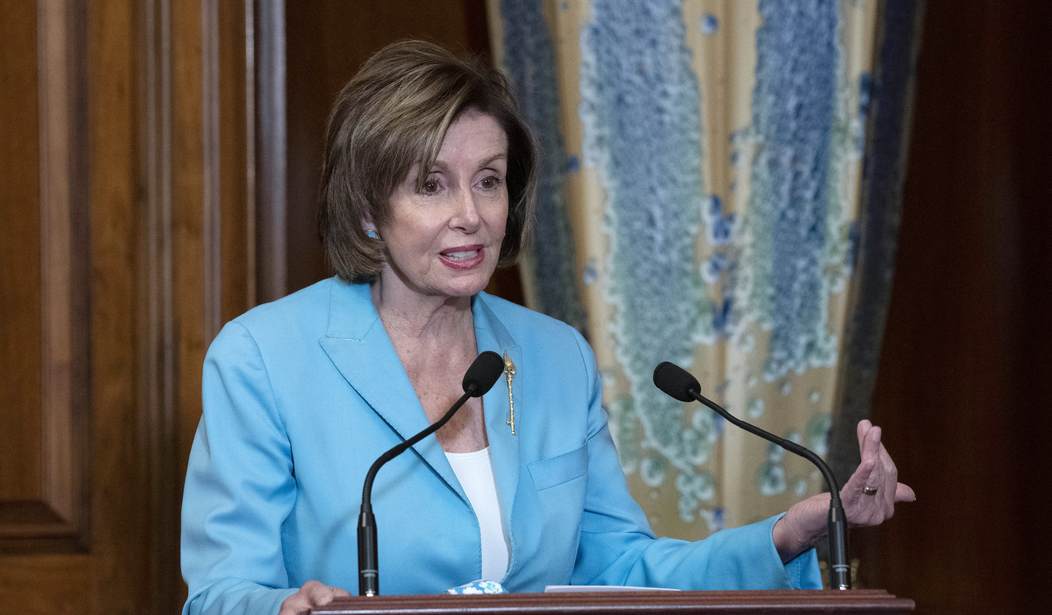Democrats in Washington have been so concerned about finding enough votes to pass their $3.5 trillion spending plan that they sorta forgot that unless they up the ceiling on the national debt and authorize money so the government can keep operating, there won’t be much of a government to spend the money in the first place.
Republicans have backed Democrats into a corner by refusing to help them raise the national debt. It’s silly, really. Republicans just spent four years jacking up deficits by cutting taxes and raising spending on social programs. For them to stand on principles of responsible fiscal policy now is ludicrous.
But politics is a game of musical chairs. And once the music stops, neither party wants to be stuck having to explain why the national debt needs to be raised from $28 trillion to $32 trillion.
The Democrats could unilaterally raise the debt ceiling either through a standalone bill or by attaching the increase to their reconciliation bill. They have the majority. And Republicans think if they’re going to stuff a $3.5 trillion spendapalooza down their throats by using the hyper-partisan reconciliation package, they can damn well take responsibility for the massive increase in the federal debt that will follow from it.
Those Democrats want Republicans to own increasing the debt, too, considering significant spending was wracked up under former President Donald Trump. And Democratic leaders nixed the idea of coupling the reconciliation bill and the debt ceiling last month amid worries that it would further hamper passage of their already labyrinthine social spending plan.
Democrats’ options include tying the debt ceiling increase to a short-term government funding bill — marrying it with hurricane aid and help for Afghani refugees — or holding a standalone vote and daring Republicans to reject it. They could also try negotiating with the GOP to combine some Republican priorities, such as defense spending, with a debt ceiling increase. When they were in the minority, Democrats helped former President Donald Trump lift the debt ceiling by cutting larger budget deals with the Republicans.
Senate Minority Leader Mitch McConnell nailed it when he told the Louisville Courier-Journal, “The debt ceiling needs to be raised. The issue is who should do it.”
“Under these uniquely unprecedented circumstances, it’s [Democrats’] obligation to do it. And they have the votes to do it, and they will do it at some point,” McConnell said.
Recommended: Radical Democrats Introduce Resolution Condemning ‘Climate of Hate’ Since 2001 Attacks
The other issue that’s threatening to send Democrats over the edge of the fiscal cliff is passing a budget. The clock will begin ticking on September 30, when the Treasury Department must begin taking extraordinary measures to keep the government operating. The two sides haven’t even begun negotiating on a stop-gap measure that would fund the government probably through early December. That too will be held up by the $3.5 trillion spending bill.
Democrats may try to entice GOP support for raising the debt ceiling by dangling hurricane relief aid for hard-hit Louisiana and the Gulf Coast.
House Democrats are planning a vote the week of Sept. 20 to likely extend government funding until Dec. 10 and have discussed rolling the debt ceiling, disaster aid and assistance for the Afghanistan withdrawal into it, according to aides. They hope pairing the debt limit with a bill to avoid a government shutdown, as well as disaster relief, makes it impossible for Republicans from impacted areas like Louisiana and Mississippi to vote no.
No final decision has been made, and success is far from guaranteed. But even with unilateral power to deal with the debt ceiling themselves, Democrats say they don’t want to set the precedent that one party is expected to address the debt limit when they are in charge.
Since congressmen from both parties are drama queens, they love to wait until disaster is staring them in the face before acting. We should expect the debt ceiling problem to be solved 15 minutes before the United States defaults and the government has to start shutting down agencies.










Join the conversation as a VIP Member